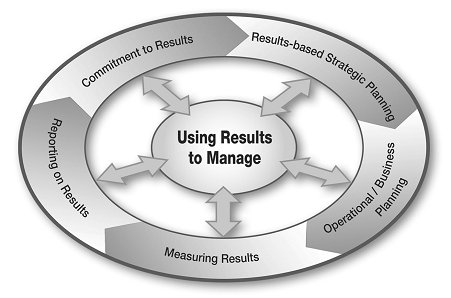Common menu bar links
Breadcrumb Trail
ARCHIVED - Performance Reporting: Good Practices Handbook 2011
 This page has been archived.
This page has been archived.
Archived Content
Information identified as archived on the Web is for reference, research or recordkeeping purposes. It has not been altered or updated after the date of archiving. Web pages that are archived on the Web are not subject to the Government of Canada Web Standards. As per the Communications Policy of the Government of Canada, you can request alternate formats on the "Contact Us" page.
Principle 3: Associate performance with plans, priorities, and expected results, explain changes, and apply lessons learned
The core elements of a performance report are descriptions of what an organization planned to accomplish, how the actual results compare with those plans, an explanation of any significant differences, and identification of lessons learned. Information contained in the RPP and the DPR should facilitate comparisons between reports and over time.
This touches on the essentials of results-based management. Results-based management is a life-cycle approach to management that integrates strategy, people, resources, processes, and measurements to improve decision making, transparency, and accountability. The approach focuses on achieving outcomes, implementing performance measurement, learning and changing, and reporting performance, as illustrated in the following diagram:

Text Version: Using Results to Manage
Planning involves the articulation of strategic choices in light of past performance and includes information on how an organization intends to deliver on its priorities and achieve associated results.
Measurement and assessment are practices through which progress is determined. Performance measurement and evaluation present valuable opportunities to learn and adjust so that the intended results may be achieved.
The final stage of the life-cycle approach involves reporting on results through the presentation of integrated financial and non-financial information. Results-based information is used for both internal management purposes and for external accountability to Parliament and Canadians. The reporting phase also provides managers and stakeholders with the opportunity to reflect on what has worked and what has not, a process of learning and adjusting that feeds into the next planning cycle.
To apply this principle:
- Link performance to plans; and
- Discuss lessons learned and corrective actions.
